Affiliated Researchers
Tap for More Details

Oriana Bandiera is the Sir Anthony Atkinson Professor of Economics at the London School of Economics. Her research focuses on development and labor economics. She is the Director of the Suntory and Toyota International Centres for Economics and Related Disciplines. She was awarded with the Carlo Alberto medal in 2011, and she is a Fellow of the Econometric Society and the British Academy.
Oriana Bandiera
London School of Economics
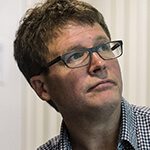
Robin Burgess is a Professor of Economics, the Co-Director of the Economic Organisation and Public Policy Programme, and the Founder and Director of the International Growth Centre at the London School of Economics. His areas of research interest include development economics, environmental and energy economics, public economics, political economy and labor economics. He is Program Director of the Development Economics Program at the Centre for Economic Policy Research (CEPR).
Robin Burgess
London School of Economics

Katherine Casey is an Associate Professor of Political Economy at the Stanford Graduate School of Business. Her research explores the interactions between economic and political forces in developing countries, with a focus on Sub-Saharan Africa. She is particularly interested in the role of information in enhancing electoral accountability, strategies to increase the productivity of government workers, and the influence of foreign aid on economic development.
Katherine Casey
Stanford University

Michael Callen is an Associate Professor at the London School of Economics. His primary research interests are political economy, development economics, and experimental economics. His affiliations include: NBER, CEPR, BREAD, J-PAL, Y-RISE, and CEGA. He earned his PhD in economics at UCSD.
Michael Callen
London School of Economics

Ana De La O Torres is an Associate Professor of Political Science at Yale. Her research focuses on the political economy of poverty alleviation, clientelism and the provision of public goods. She is affiliated with the MacMillan Center for International and Area Studies, the Institution of Social and Policy Studies, and the Jackson Institute for Global Affairs.
Ana De La O Torres
Yale University

Ernesto Dal Bó is the Phillips Girgich Professor of Business at the Haas School of Business at the University of California, Berkeley. His research focuses on governance with special attention on political influence, social conflict, corruption, morality and social norms, state formation, the development of state capabilities, and the qualities and behavior of politicians and public servants. He is the Director of the Berkeley Center for Economics and Politics (BCEP).
Ernesto Dal Bó
University of California, Berkeley
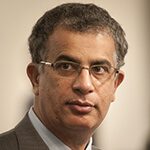
Adnan Khan is Research and Policy Director of the International Growth Centre at the London School of Economics and Political Science. He lectures at the LSE and is a Co-chair of the LSE-Oxford Commission on State Fragility, Growth and Development. His research interests lie in the areas of development economics, public finance and political economy. He is currently a visiting lecturer in Public Policy at the Harvard Kennedy School.
Adnan Khan
London School of Economics

Michael Kremer is the University Professor in the Kenneth C. Griffin Department of Economics. He is the 2019 co-recipient of the Sveriges Riksbank Prize in Economic Sciences in Memory of Alfred Nobel. He is a Member of the National Academy of Sciences, a recipient of a MacArthur Fellowship and a Presidential Faculty Fellowship, and was named a Young Global Leader by the World Economic Forum. Kremer’s recent research examines education, health, water, and agriculture in developing countries.
Michael Kremer
University of Chicago

Eliana La Ferrara is a Professor of Public Policy at Harvard Kennedy School. She is President of the Econometric Society and Program Director of Development Economics for the Center for Economic Policy Research (CEPR). She is also a J-PAL Affiliate, a Foreign Honorary Member of the American Economic Association, and an International Honorary Member of the American Academy of Arts and Sciences.
Her research focuses on Development Economics and Political Economics, particularly on the role of social factors in economic development.
Her work has been published in leading economic journals, including the American Economic Review, Econometrica, and the Quarterly Journal of Economics, among others.
Eliana received a PhD in Economics from Harvard University in 1999. Prior to joining Harvard, she was the Invernizzi Chair in Development Economics at Bocconi University, Milan, where she founded and directed the Laboratory for Effective Anti-poverty Policies (LEAP). She was president of the Bureau for Research and Economic Analysis of Development (BREAD) in 2016-2019 and of the European Economic Association in 2018. She is the recipient of the 2020 Birgit Grodal Award.
Eliana La Ferrara
Harvard University

Dilip Mookherjee is Professor of Economics at Boston University. His research interests include development economics, contract and organization theory. Recent projects on the Indian economy include rural development; microfinance and financial development, entrepreneurship and governance reforms. He is a Fellow of the Econometric Society, and serves on the editorial board of Ideas For India. He is the recipient of many research grants, including some from USAID and the NSF.
Dilip Mookherjee
Boston University

Karthik Muralidharan is the Tata Chancellor’s Professor of Economics at UC San Diego. His research focuses on development, public, and labor economics, with particular interest in education, health, and social protection; program evaluation; and improving the effectiveness of public spending, especially in developing countries. He serves as an Honorary Advisor to the Government of India, and is on the Board of Directors of the Poverty Action Lab at MIT where he is co-chair of the education research program.
Karthik Muralidharan
University of California, San Diego

Paul Niehaus is an Associate Professor of Economics at UC San Diego. His research focuses on various economic and social issues in developing countries, including corruption, political elections, the effects of cash transfers and social learning. He is also a Junior Affiliate at the Bureau for Research and Economic Analysis of Development (BREAD), and an Affiliate at the Center for Effective Global Action (CEGA). He is a co-founder of GiveDirectly and Segovia Technology Co. In 2013 Foreign Policy named him one of its 100 leading “Global Thinkers.”
Paul Niehaus
University of California, San Diego

James Robinson is The University and Reverend Dr. Richard L. Pearson Professor of Global Conflict at the University of Chicago. His work spans political and economic development, with a particular focus on exploring the underlying relationship between poverty and the institutions of a society, and how institutions emerge out of political conflicts. He has a particular interest in Latin America and Sub-Saharan Africa. He is widely recognized as the co-author of Why Nations Fail: The Origins of Power, Prosperity, and Poverty, with Daron Acemoglu. He is the Institute Director for The Pearson Institute for the Study and Resolution of Global Conflicts.
James Robinson
University of Chicago

Frederico Finan is an Associate Professor of Economics at the University of California Berkeley. His research has focused on political economy issues in Latin American countries. He has studied the effects of publicizing information about corruption in Brazil, and how financial incentives affect the behavior of public sector workers. He is the Co-Director of Berkeley’s Center for Economics and Politics and received a Sloan Fellowship in 2013.
Frederico Finan
University of California, Berkeley
Network Convener

Gerard Padro i Miquel is a Professor of Economics and Political Science at Yale University, where he is also the Director of the Leitner Program of International and Comparative Political Economy.
He is interested in the interplay between politics and economics as a barrier for development with a focus on civil conflict and on the politics of non-democratic regimes. His previous work has been published at the Quarterly Journal of Economics, American Economic Review, Review of Economic Studies and the Quarterly Journal of Political Science among others.
Gerard Padró i Miquel
Yale University
Network Convener
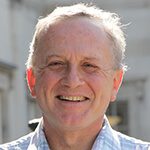
Orazio Attanasio is the Cowles Professor of Economics at Yale University. He is a Research Associate at the National Bureau of Economic Research (NBER), a Senior Fellow at the Bureau for Research and Economic Analysis of Development and a Research Fellow at the Centre for Economic and Policy Research. After obtaining a PhD at the London School of Economics, Orazio taught at Stanford University and the University of Bologna. He was also a National Fellow at the Hoover Institution at Stanford and a visiting professor at the University of Chicago. Before joining Yale, he was the Jeremy Bentham Professor of Economics at University College London. He has been Managing Editor of the Review of Economic Studies, the Journal of the European Economic Association and Quantitative Economics. In 2016, he was awarded the Carlos Diaz Alejandro Prize by LACEA and the Klaus Jacobs Research Prize by the Jacob Foundation. In 2017, he was elected 2nd vice-president of the Econometric Society to serve as president in 2020.
Orazio’s research interests include household consumption, saving and labour supply behavior, risk sharing, evaluation and design of policies in developing countries, human capital accumulation in developing countries, early years interventions, micro-credit, and measurement tools in surveys.
Orazio Attanasio
Yale University
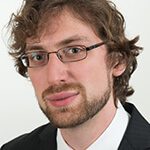
Michael Gechter is an Assistant Professor of Economics at Penn State University. His research is mainly in development economics and econometrics, and focuses in particular on randomized experiments and their external validity.
Michael Gechter
Pennsylvania State University

Toru Kitagawa is a Professor of Economics at Brown University. His research and teaching interests include econometrics, causal inference, statistical decision theory, Bayesian analysis, applied microeconomics, empirical macroeconomics, and experimental economics.
In 2024, one of Kitagawa’s papers coauthored with Raffaella Giacomini was awarded the inaugural Haavelmo prize, the award for a best econometrics paper published in Econometrica in the previous 4 years. In 2023, Kitagawa was awarded the Nakahara prize, an award given to best Japanese economist under the age of 45. He has won an NSF grant (2024 – 27) and a Horizon 2020 starting grant (2017-22) from European Research Council.
Before joining Brown in 2021, he was Professor of Economics at University College London. He is affiliated as Research Staff at Center for Microeconometrics Methods and Practice (Cemmap), Research Fellow at Institute for Fiscal Studies (IFS), and Researcher at Yale Research Initiative on Innovation and Scale (Y-RISE). He holds Ph.D and M.A both in Economics from Brown University and B.A. in Engineering from the University of Tokyo.
Toru Kitagawa
Brown University

Patrick Kline is an Associate Professor of Economics at UC Berkeley and a faculty research associate at the National Bureau of Economic Research. He is a foreign editor of the Review of Economic Studies and serves as associate editor at the Journal of Political Economy, Econometrica, and the American Economic Journal: Applied. His research interests include place-based policies, imperfectly competitive labor markets, and program evaluation methods. In 2018 he was awarded the Sherwin Rosen Prize for outstanding contributions to the field of labor economics.
Patrick Kline
University of California, Berkeley

Charles Manski is the Board of Trustees Professor of Economics and Faculty Fellow at the Institute for Policy Research at Northwestern University. His research focuses on rational choice theory, econometrics, judgment and decision, and the analysis of public policy. He is the author of several books including Public Policy in an Uncertain World, and Identification for Prediction and Decision. He is an elected fellow of the Econometric Society, the National Academy of Sciences, The American Academy of Arts and Sciences, and the American Association for the Advancement of Science and the British Academy. He is also a Distinguished Fellow of the American Economic Association.
Charles Manski
Northwestern University

Rachael Meager is an Associate Professor at the University of New South Wales, Sydney.
Her research interests lie in the intersection of Bayesian statistics, econometrics and development economics. She most often does applied econometrics aimed at measuring generalizability and quantifying uncertainty around the knowledge base in development economics and economics more broadly. She focuses on Bayesian modelling of treatment effect heterogeneity at multiple levels within data sets and literatures.
Rachael Meager
University of New South Wales

Costas Meghir is the Douglas A. Warner III Professor of Economics at Yale University. His research focuses on labor economics, the economics of education and development economics. In particular, he has designed and implemented early childhood interventions using randomized control trials. These interventions showed promising results on cognitive and language development. He has received several awards, including the Frisch Medal. He is a fellow of the British Academy and of the Econometric Society and has served as editor of Econometrica.
Costas Meghir
Yale University

Magne Mogstad is the Gary S. Becker Professor in Economics at the University of Chicago. His research focuses on public and labor economics and policy evaluation. In particular, he studies market failures and potential corrections for them — through taxation, educational subsidies, social insurance, and other policies. He is an editor of the Journal of Political Economy and has received several awards, including the Alfred Sloan Foundation Fellowship.
Magne Mogstad
University of Chicago

Yusuke Narita is an Assistant Professor at Yale University. His research involves studying education and labor topics using a variety of methods such as causal inference, machine learning, experiment/bandit, and structural econometric modeling. His work has been published in top journals including Econometrica, American Economic Review, Journal of Economic Theory, and the Journal of Economic Behavior & Organization.
Yusuke Narita
Yale University
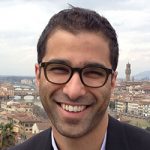
Azeem Shaikh is a Professor of Economics, and the Thornber Research Fellow, at the University of Chicago. He is also the Co-Director of the Big Data Initiative at the Becker Friedman Institute for Research in Economics. His research interests are in econometric theory, and recent papers have covered topics such as partial identification, multiple testing, resampling methods, and empirical likelihood. His work has been published in top journals including Econometrica, Annals of Statistics, Econometric Theory, American Economic Review, Annual Review of Economics, Journal of Applied Econometrics, and the Journal of Political Economy. He also was the recipient of the Dennis J. Aigner Award for Applied Econometrics in 2013, and was awarded an Alfred P. Sloan Research Fellowship in the years 2011-2013.
Azeem Shaikh
University of Chicago
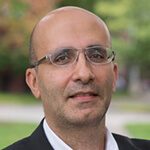
Elie Tamer the Louis Berkman Professor of Economics at Harvard University and a Fellow of the Econometric Society. His research focuses on econometrics and empirical industrial organization. He is also a former co-editor of Econometrica and Quantitative Economics. His research has won many grants and awards, including the Alfred Sloan Foundation Fellowship and several NSF grants.
Elie Tamer
Harvard University

Petra Todd is the Edmund J. and Louise W. Kahn Term Professor of Economics at the University of Pennsylvania. Her research focuses on social program evaluation, labor economics and microeconometrics. In particular, she has studied the sources of racial wages disparities, school vouchers, methods to optimize conditional cash transfers programs, and the functioning of pension systems. She is a Fellow of the Econometric Society and a Fellow of the Society of Labor Economics. She is also affiliated with HCEO, IZA, NBER, and the U Penn Population Studies center.
Petra Todd
University of Pennsylvania

Alexander Torgovitsky is an Assistant Professor of Economics at the University of Chicago. His research focuses on identification and inference problems in microeconometrics, applied econometrics and causal inference. He has received research grants from the NSF.
Alexander Torgovitsky
University of Chicago

Christopher Udry is the Robert E. and Emily King Professor at Northwestern University. He studies a variety of topics in development economics, like technological change, risk and financial markets, gender and households, property rights, psychological well-being and economic decision-making, and a range of other aspects of rural development. He is a Fellow of the Econometric Society and of the American Academy of Arts and Sciences, a Board Member of Bureau for Research and Economic Analysis of Development, and a research associate of the National Bureau of Economic Research. He is the co-founder and co-director of the Global Poverty Research Lab.
Christopher Udry
Northwestern University

Eva Vivalt is an Assistant Professor in the Department of Economics at the University of Toronto and Director of the Global Priorities Institute at the University of Oxford.
Dr. Vivalt’s main research interests are in investigating stumbling blocks to evidence-based policy decisions, including methodological issues, how evidence is interpreted, and the use of forecasting. Dr. Vivalt is also a principal investigator on three guaranteed income RCTs and has other interests in labor economics and development. Dr. Vivalt is a co-founder of the Social Science Prediction Platform, a platform to coordinate the collection of forecasts of research results.
Dr. Vivalt holds a Ph.D. in Economics and an M.A. in Mathematics from the University of California, Berkeley and previously worked with the Development Economics Research Group at the World Bank. Prior to the Ph.D., Dr. Vivalt completed an M.Phil. in Development Studies at the University of Oxford on a Commonwealth Scholarship.
Dr. Vivalt is an Associate Member of Nuffield College at the University of Oxford, has visited the Department of Economics at Yale University and Stanford University, and was previously a lecturer at the Australian National University. Dr. Vivalt is also a Faculty Affiliate at the Schwartz Reisman Institute for Technology and Society, an Affiliated Researcher at the Yale Research Initiative on Innovation and Scale, and an Invited Researcher at the Abdul Latif Jameel Poverty Action Lab.
Eva Vivalt
University of Toronto

Aprajit Mahajan is an Associate Professor in the Department of Agricultural and Resource Economics at University of California Berkeley. His research interests are in development and econometrics with a regional focus on India. In his studies he has explored the interaction of finance, development and health outcomes. He is the recipient of several grants supporting his research, including from the National Science Foundation and the National Institute of Health.
Aprajit Mahajan
University of California, Berkeley
Network Convener

Edward Vytlacil is a Professor of Economics at Yale University. His research focuses on the micro-econometrics of treatment effects and policy evaluation. In addition to his work in econometric methodology, he has published empirical work in labor economics and health economics. He has won several awards, including two Aigner awards for his papers in the Journal of Econometrics, and he is a Fellow of the Econometric Society.
Edward Vytlacil
Yale University
Network Convener

Lori Beaman is an Associate Professor of Economics at Northwestern University. Her areas of research are social networks and labor markets and their interactions, and constraints on women’s participation in the economy and in politics. She was awarded the National Science Foundation CAREER Grant in 2013.
Lori Beaman
Northwestern University

Lauren Falcao Bergquist is an Assistant Professor of Economics and Global Affairs at Yale University. She was previously an Assistant Professor of Economics at the University of Michigan, a Visiting Assistant Professor at MIT, and a Saieh Family Fellow at the Backer Friedman Institute at the University of Chicago.
She is a Faculty Research Fellow at National Bureau of Economic Research, a Research Affiliate at the Center of Economic and Policy Research, and an Affiliate at the Bureau for Research and Economic Analysis of Development and the Jameel Poverty Action Lab. She is also the Lead Academic for Rwanda for the International Growth Centre.
Bergquist specializes in development economics, with a focus on agricultural markets and firms in sub-Saharan Africa. She has recently studied the determinants of food price fluctuations, the degree of competition among agricultural intermediaries, and the effects of digital markets. Her research also explores the impacts of policies at scale.
She holds a B.A. in Economics and Political Science from Stanford University and a Ph.D. in Economics from the University of California, Berkeley.
Lauren Falcao Bergquist
Yale University

Emily Breza is an Assistant Professor of Economics at Harvard University. Her areas of research are development economics, social networks and household finance. In particular, her research interests include work on microfinance and social networks in India, direct deposits and savings in Bangladesh, and credit score rehabilitation among defaulters in Colombia.
Emily Breza
Harvard University

Arun Chandrasekhar is an Assistant Professor of Economics at Stanford University. His research focuses on social networks, microfinance, and the functioning of formal and informal institutions in developing countries. He has been awarded with several grants and awards, including the Alfred P. Sloan Research Fellowship in 2018.
Arun Chandrasekhar
Stanford University
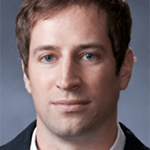
Kevin Donovan is an Assistant Professor of Economics at the Yale School of Management. His research interests are on both the macro and microeconomics of economic growth, mostly studying constraints to firm growth in the developing world. His recent work along this dimension includes the impacts of missing infrastructure for Central American farmers and microenterprise training in Kenya. Other work focuses on cross-country differences in labor market flows, and their implications for aggregate outcomes.
Kevin Donovan
Yale University

Andrew Foster is a Professor of Economics at Brown University. His research focuses on population, environment, development and health. In particular, he has examined various aspects of economic growth in rural India, including the effects of democratization, groundwater usage, forest cover, household structure, inequality, and schooling. He has won many awards and research grants, including from the NSF, the NIH, and the National Institute of Child Health and Development.
Andrew Foster
Brown University
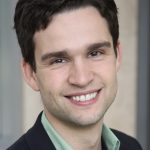
Benjamin Golub is a Professor in the Department of Economics and the Department of Computer Science (by courtesy) at Northwestern University.
Ben’s research focuses on social and economic networks, particularly in models of social learning, local public goods, peer effects, and the formation of social capital. A recurring theme is capturing aspects of networks through theory-based summary statistics that can be useful in empirical studies and policy analyses.
Benjamin Golub
Northwestern University

Kelsey Jack is an Associate Professor at the Bren School of Environmental Science and Management at UC Santa Barbara. Prior to joining the faculty at UCSB, she was an Assistant Professor in the Economics Department at Tufts University and a Post-Doctoral Associate at MIT, with the Agricultural Technology Adoption Initiative (ATAI) at J-PAL. Her research lies at the intersection of environmental and development economics, with a focus on household and community level natural resource use and the private provision of public goods. Much of her research uses field experiments to test theory and new policy innovations.
Kelsey Jack
University of California, Santa Barbara
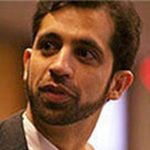
Asim Khwaja is the Sumitomo-FASID Professor of International Finance and Development at the Harvard Kennedy School. His research focuses on development economics, education, political economy, financial markets and public finance. His was selected as a Carnegie Scholar in 2009 for his research on religious institutions. He is the Co-Director of Evidence for Policy Design, and has received many grants for research, including from the NSF and from USAID.
Asim Ijaz Khwaja
Harvard University

Michael Kremer is the University Professor in the Kenneth C. Griffin Department of Economics.
He is the 2019 co-recipient of the Sveriges Riksbank Prize in Economic Sciences in Memory of Alfred Nobel.
He is a Member of the National Academy of Sciences, a recipient of a MacArthur Fellowship and a Presidential Faculty Fellowship, and was named a Young Global Leader by the World Economic Forum.
Kremer’s recent research examines education, health, water, and agriculture in developing countries.
Michael Kremer
University of Chicago

Jeremy Magruder is an Associate Professor of Agricultural and Resource Economics at UC Berkeley. His research interests include employment and unemployment in developing countries, with a focus on three main aspects: how the unemployed find work, how labor market policies influence labor demand, and understanding the forces that determine the success of a match between firms and workers.
Jeremy Magruder
University of California, Berkeley

Kaivan Munshi is currently Professor of Economics at Yale University, a Faculty Affiliate of the Economic Growth Center, and was previously the Frank Ramsey Professor of Economics at the University of Cambridge. His research career has been devoted to the analysis of social institutions and their interaction with economic activity. Professor Munshi’s research has been published in the American Economic Review, Journal of Political Economy, Quarterly Journal of Economics, and the Review of Economic Studies. He was the recipient of the Infosys Prize in the Social Sciences in 2016.
Kaivan Munshi
Yale University

Christopher A. Neilson is an applied microeconomist whose research focuses on the study of education markets and policies that promote equitable opportunities for human capital accumulation. Neilson studies how government policy affects students, families, and education providers, drawing on methods from industrial organization, labor economics, and development economics. He works closely with governments, particularly in Latin America, to help them leverage their data, existing evidence, and technology, to design, evaluate, and implement new education policies. In 2018, Neilson founded ConsiliumBots, an NGO that serves as an incubator for ideas in education. To date, ConsiliumBots has developed tools that have helped over 2 million families in 7 countries in Latin America and the Caribbean.
Christopher Neilson
Yale University

Nicholas Ryan is an Assistant Professor of Economics at Yale University. His research focuses on energy markets and environmental regulation in developing countries. In particular, he has studied pollution emissions and market incentives, the effect of power grid capacity on electricity prices and how firms make decisions about energy efficiency.
Nicholas Ryan
Yale University

Ahmed Mushfiq Mobarak is a Professor of Economics at Yale University. He conducts field experiments exploring ways to induce people in developing countries to adopt technologies or behaviors that are likely to be welfare improving. He also examines the implications of scaling up development interventions that are proven effective in such trials. Mobarak is currently collaborating with Evidence Action in multiple countries to replicate, test, and scale a research program called No Lean Season that encourages rural to urban seasonal migration to counter seasonal poverty. He received a Carnegie Fellowship in 2017.
Ahmed Mushfiq Mobarak
Yale University
Y-RISE Faculty Director
Network Convener

Mark R. Rosenzweig is the Frank Altschul Professor of International Economics at Yale University. Recent work by Rosenzweig has studied the role of networks in determining economic outcomes, the general equilibrium effects of insurance, and the external validity of causal estimates across time. Rosenzweig is a Fellow of the Econometric Society and Director of the Economic Growth Center at Yale University.
Mark R. Rosenzweig
Yale University
Network Convener

Wyatt Brooks is an associate professor of economics in the W.P. Carey School of Business at ASU. He studies development economics and international trade.
He has conducted fieldwork in Kenya, Nicaragua, Uganda, Rwanda, Brazil and many other countries.
His work has been published in leading academic journals, including Econometrica, the Journal of Monetary Economics and the International Economic Review.
Wyatt Brooks
Arizona State University

Benjamin Faber is an Assistant Professor of Economics in the University of California, Berkeley Department of Economics. His research lies at the intersection of development economics and international trade, focusing on the impact of different forms of market integration on the economic livelihoods of households in developing countries. He is an Associate Editor for Econometrica; an affiliate of BREAD, IGC, CEPR, CEGA, and the Clausen Center for International Business and Policy; and a NBER Faculty Research Fellow.
Benjamin Faber
University of California, Berkeley

Gharad Bryan is an Assistant Professor of Economics at the London School of Economics. His research focuses on development economics with special attention on agriculture, migration, behavioral and experimental economics. He is the Co-program Director of the International Growth Center and he is an affiliate of JPAL and IPA.
Gharad Bryan
London School of Economics

Francisco Buera is the Sam B. Cook Professor of Economics at Washington University in St. Louis. His research centers on understanding the patterns of economic development across countries and over time. He has focused on particular aspects of the broader development question, such as the structural changes associated with development, the role of financial frictions in affecting this process, and the diffusion of technologies, economic policies, and institutions across countries. His work aims at filling the gap between the empirical work and the theoretical work, and lies at the intersection of macro and development. He builds aggregate models with empirically motivated microeconomic considerations, such as heterogeneity across sectors and individuals, and market failures, such as financial frictions. Before joining the economics department at Washington University, he held positions at Federal Reserve Bank of Chicago, UCLA, the Federal Reserve Bank of Minneapolis, and Northwestern University, as well as visiting positions at Princeton University and MIT. His work has received the support of the National Science Foundation, the Kauffman Foundation, and the Consortium of Financial Systems and Poverty at the University of Chicago. He is Associate Editor of the Review of Economic Studies and the American Economic Journal: Macroeconomics.
Francisco Buera
Washington University in St. Louis
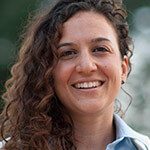
Julieta Caunedo is an Assistant Professor of Economics at Cornell University. Her research focuses on macroeconomics and development economics. Recent work studies the cross-country disparities in agriculture productivity with focus on farm mechanization.
Julieta Caunedo
Cornell University

Kevin Donovan is an Assistant Professor of Economics at the Yale School of Management. His research interests are on both the macro and microeconomics of economic growth, mostly studying constraints to firm growth in the developing world. His recent work along this dimension includes the impacts of missing infrastructure for Central American farmers and microenterprise training in Kenya. Other work focuses on cross-country differences in labor market flows, and their implications for aggregate outcomes.
Kevin Donovan
Yale University

Doug Gollin’s research focuses broadly on economic development and growth, with an emphasis on the structural transformations that accompany the growth process. He has particular interests in agricultural productivity and technology, from a micro scale to macro scale. His work has also looked at rural-urban mobility and urbanization processes, spatial patterns of development and a range of other topics.
He currently serves as Research Director for a major global program of academic research on Structural Transformation and Economic Growth (STEG), funded by the UK Foreign, Commonwealth, and Development Office, and he is a research fellow of the Centre for Economic Policy Research (CEPR) and the Bureau for Research and Economic Analysis of Development (BREAD).
Professor Gollin holds an A.B. degree from Harvard University and an M.A. in international relations from Yale University. He received his PhD in economics from the University of Minnesota in 1996.
He has published in numerous academic journals including Journal of Political Economy, Quarterly Journal of Economics, Science, Journal of Development Economics, Journal of Monetary Economics, Journal of Urban Economics, and American Journal of Agricultural Economics.
Doug Gollin
Tufts University
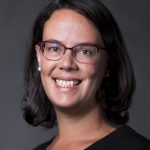
Cynthia Kinnan is an Assistant Professor of Economics at Tufts University. Her research focuses on how households and small firms in developing countries use financial products and informal networks to finance investment and cope with risk. She is an Affiliate of the Abdul Latif Jameel Poverty Action lab (J-PAL), a Faculty Research Fellow for the National Bureau of Economic Research (NBER), and an Affiliate of the Bureau for Research in Economic Analysis and Development (BREAD).
Cynthia Kinnan
Tufts University
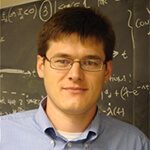
Virgiliu Midrigan is the William R. Berkley Term Professor of Economics and Business at New York University. His research focuses on macroeconomics and international economics, with a special interest on household debt and savings, employment and international trade. He was awarded the Sloan Research Fellowship in 2012.
Virgiliu Midrigan
New York University
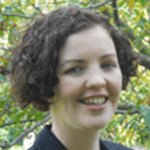
Melanie Morten is an Assistant Professor of Economics at Stanford University. Her research focuses on the effects of labor migration on aggregate productivity, risk-sharing via informal insurance, and remittances, with a particular emphasis on their interactions.
Melanie Morten
Stanford University

Paul Niehaus is an Associate Professor of Economics at UC San Diego. His research focuses on various economic and social issues in developing countries, including corruption, political elections, the effects of cash transfers and social learning. He is also a Junior Affiliate at the Bureau for Research and Economic Analysis of Development (BREAD), and an Affiliate at the Center for Effective Global Action (CEGA). He is a co-founder of GiveDirectly and Segovia Technology Co. In 2013 Foreign Policy named him one of its 100 leading “Global Thinkers.”
Paul Niehaus
University of California, San Diego

Michael Peters is an Assistant Professor of Economics at Yale University. He is a macroeconomist with a focus on development economics and long-run economic growth. He has worked on the importance of imperfect competition in product markets in Indonesia, the process of creative destruction — or lack thereof — in India’s manufacturing sector, the spatial implications of the process of structural change and the relationship between immigration and local productivity growth.
Michael Peters
Yale University

Tommaso Porzio is the David W. Stanton Associate Professor of Business (without tenure) within the Economics Division at Columbia Business School. Before joining Columbia he was an Assistant Professor at University of California, San Diego . He is a Faculty Research Fellow at NBER (DEV) and a research affiliate at CEPR and CDEP. He graduated from Yale University in 2016. Tommaso is interested in macroeconomics, economic development and growth. Recently he worked on topics such as the slow accumulation of human capital from work experience in developing countries, the East-West Germany persistent divide, and the role of human capital deepening for labor reallocation out of agriculture.
Tommaso Porzio
Columbia University

Yongseok Shin is a Professor of Economics at Washington University in St. Louis. His research spans several areas, including macroeconomics, the role of financial markets in economic development, and international migration. He is a research fellow at the Federal Reserve Bank of St. Louis and the National Bureau of Economic Research.
Yongseok Shin
Washington University in St. Louis

Adam Szeidl is a Professor of Economics and Business at the Central European University (CEU). He is an applied microeconomist who has done research on the economics of networks, international trade, behavioral economics and consumption. He is an editor of the Review of Economic Studies and won several awards, including the Alfred P. Sloan Research Fellowship in 2010.
Adam Szeidl
Central European University

Rob Townsend is the Elizabeth & James Killian Professor of Economics at Massachusetts Institute of Technology. He has studied the role and impact of economic organization and financial systems through applied general equilibrium models, contract theory, and the use of micro data. He is a Fellow of the Econometric Society and of the American Academy of Arts and Sciences. He won many awards, including the Jean-Jacques Laffont Prize, and the Frisch Medal twice.
Robert Townsend
Massachusetts Institute of Technology
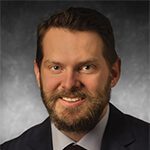
Michael Waugh is a Monetary Advisor at the Federal Reserve Bank of Minneapolis and a research associate at the National Bureau of Economic Research. He is also a member of the advisory board for the Carnegie-Rochester-NYU Conference on Public Policy, associate editor for the International Economic Review, and involved with Y-Rise.
Prior to joining the Minneapolis Fed, Dr. Waugh was a Professor of Economics and the William R. Berkley Term Professor of Economics and Business at New York University, Leonard N. Stern School of Business.
His research focuses on international trade, macroeconomics, development, and their intersection.
He is also the developer of www.tradewartracker.com that is a live, up-to-date website visually displaying trade data with open access to the data and code behind the presentation.
Michael Waugh
New York University

Fabrizio Zilibotti is the Tuntex Professor of International and Development Economics in the Department of Economics at Yale University. His research interests include economic growth and development, political economy, macroeconomics, and the economic development of China. He is a Fellow of the Econometric Society and NBER, a co-editor of Econometrica, and a co-director of the NBER Group on Income Distribution and Macroeconomics. He was the President of the European Economic Association in 2016. He received the Yrjö Jahnsson award in 2009 for the best economist in Europe under 45 and the Sun Yefang 2012 Award from the Chinese Academy of Social Sciences for his article “Growing Like China.”
Fabrizio Zilibotti
Yale University

Joseph P. Kaboski is the David F. and Erin M. Seng Foundation Professor of Economics in the Department of Economics at the University of Notre Dame. His research focuses on growth and development, including work on the macroeconomic effects of development programs. In 2012, he was awarded the prestigious Frisch Medal, awarded biannually for the best paper in the journal Econometrica over the previous five years, for his research on microfinance.
Joseph P. Kaboski
University of Notre Dame
Network Convener

David Lagakos is a Professor at Boston University.
Lagakos conducts research in the fields of macroeconomics and development economics, focusing on the determinants of sectoral productivity levels, human capital accumulation, structural transformation, and cross-country differences in labor market outcomes, among other topics. His research has appeared in the American Economic Review, the Journal of Political Economy, the Quarterly Journal of Economics and other prominent academic journals. He currently serves as an editor of the Review of Economic Dynamics and a co-editor of the Journal of Development Economics.
Since 2016 he has worked as the lead academic for the International Growth Centre in Ghana, helping to foster policy-relevant academic research on economic growth.
Lagakos is a research affiliate at the NBER and is a co-organizer of the annual NBER conferences on Economic Growth and Macroeconomics Across Time and Space.
Before joining the faculty of Boston University, Lagakos was an associate professor with tenure at the University of California San Diego, and held previous positions at Arizona State University and the Federal Reserve Banks of Minneapolis and New York. He received his PhD in 2008 from UCLA and his BA in 2001 from the University of Rochester.
David Lagakos
Boston University
Network Convener
Policy Implementation and Institutional Capacity

Robert Jensen is a professor of economics and director of the Program on Social Enterprise at the Yale School of Management. His research focuses on poverty and economic development, including topics such as gender, health, education, fertility and the role of markets and private enterprise in promoting economic development. He is an Associate Editor for the Quarterly Journal of Economics, a Research Associate of the National Bureau of Economic Research, and an affiliate of the Abdul Latif Jameel Poverty Action Lab.
Robert Jensen
Yale University
Network Convener

Michael Kremer is the University Professor in the Kenneth C. Griffin Department of Economics.
He is the 2019 co-recipient of the Sveriges Riksbank Prize in Economic Sciences in Memory of Alfred Nobel.
He is a Member of the National Academy of Sciences, a recipient of a MacArthur Fellowship and a Presidential Faculty Fellowship, and was named a Young Global Leader by the World Economic Forum.
Kremer’s recent research examines education, health, water, and agriculture in developing countries.
Michael Kremer
Harvard University
Network Convener
Staff

Neela a. Saldanha
Executive Director

Ellen Bates-Jefferys
Senior Research Manager

MITCHELL VANVUREN
Postdoctoral Associate

Islamul
Haque
Postdoctoral Associate

Eric HSU
Postdoctoral Associate

shihas abdul Razak
Research Associate

nicole hu
Research Associate

Anushka Kataruka
Research Associate

sara Gomez-Mesa
Research Associate



































































